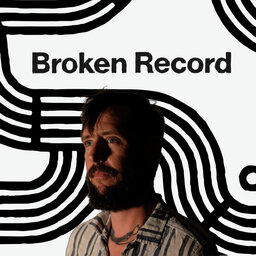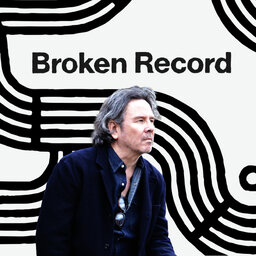Cheap Trick's Rick Nielsen
Rick Nielsen is best known as Cheap Trick’s lead guitarist and main songwriter. In the late '70s, Cheap Trick helped popularize power pop with their songs “Surrender” and “I Want You To Want Me," which were precursors to the pop punk explosion in the '90s with bands like Green Day and Blink-182. In June, Cheap Trick released their 20th studio album, In Another World that's chock full of Rick Neilsen’s monster riffs that recall their glory days in the 1970s.
On today’s episode, Bruce Headlam talks to Rick Neilsen about Cheap Trick’s origin story while Neilsen fiddles around on an electric guitar and samples riffs from the new album. Nielsen also talks about how he was hired to bring a hard rock sound to John Lennon’s final album with Yoko, Double Fantasy, and what it was like working with the Beatles legendary producer, George Martin.
Subscribe to Broken Record’s YouTube channel to hear all of our interviews: https://www.youtube.com/brokenrecordpodcast and follow us on Twitter @BrokenRecord
You can also check out past episodes here: https://brokenrecordpodcast.com
Check out a playlist of our favorite Cheap Trick and power pop tracks HERE.
Learn more about your ad-choices at https://www.iheartpodcastnetwork.com
 Broken Record with Rick Rubin, Malcolm Gladwell, Bruce Headlam and Justin Richmond
Broken Record with Rick Rubin, Malcolm Gladwell, Bruce Headlam and Justin Richmond


